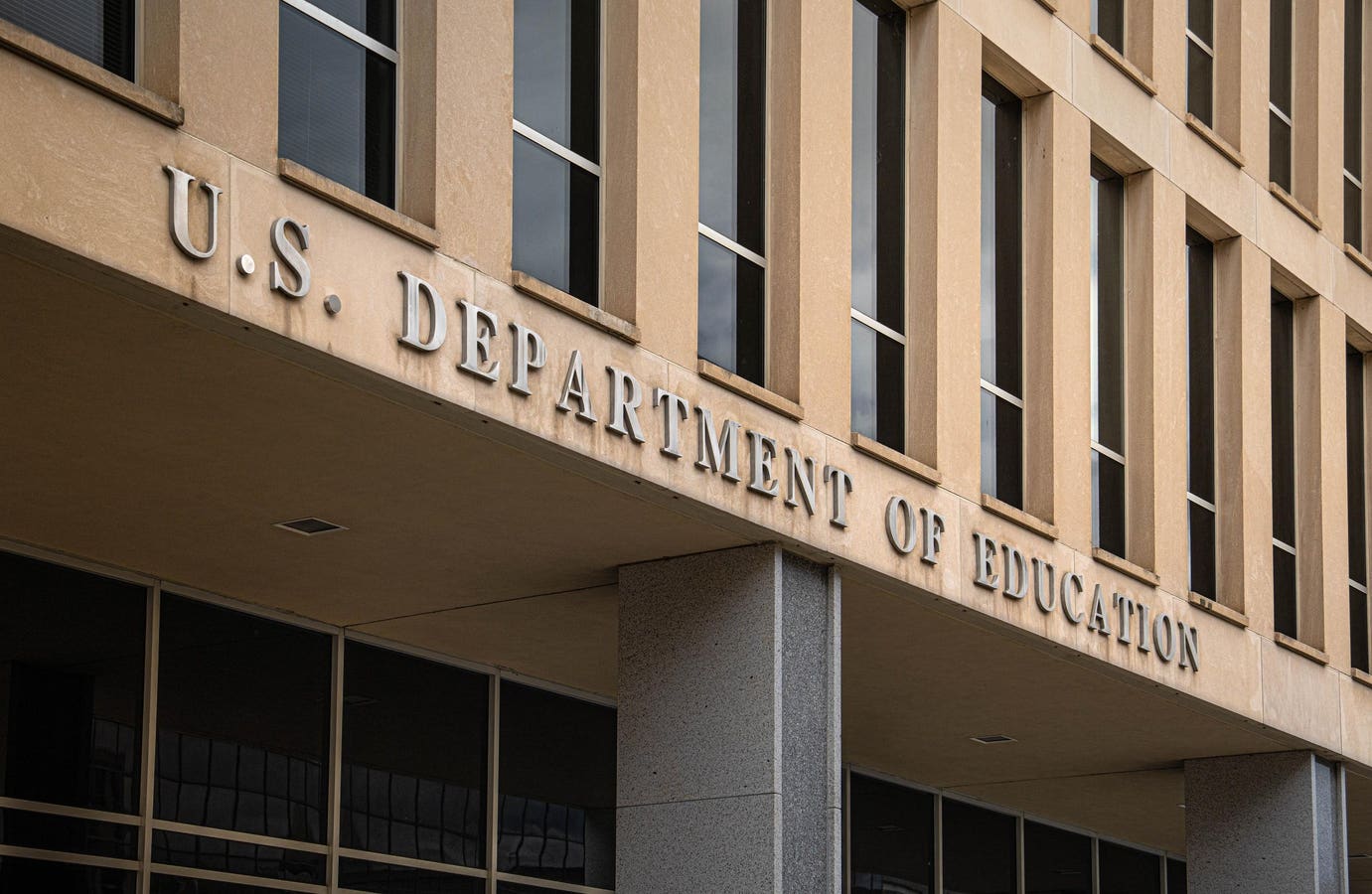The U.S. Department of Education announced on Tuesday it intends to fine Grand Canyon University (GCU) $37.7 million for deceiving thousands of students about the costs of its doctoral programs.
Phoenix-based GCU is the largest Christian university in the nation, enrolling more than 100,000 students, most of whom are in online programs. The proposed fine is the largest fine of its kind ever levied by the U.S. Department of Education.
CGU has earlier denied any wrongdoing, claiming it’s being unfairly targeted and retaliated against by the Department over an ongoing dispute about its nonprofit status. And today it posted a lengthy online statement refuting the Department’s claims and saying it “categorically denies every accusation in the Department of Education’s statement and will take all measures necessary to defend itself from these false accusations.”
According to the Department’s news release, an investigation by its office of Federal Student Aid (FSA) concluded GCU lied to more than 7,500 former and current students over several years about the true costs of its doctoral programs. The FSA said GCU falsely advertised a lower cost than what 98% of students actually paid to complete certain doctoral programs, according to a 34-page letter detailing the charges sent by the Department to GCU President Brian Mueller.
“GCU lied about the cost of its doctoral programs to attract students to enroll,” said FSA Chief Operating Officer Richard Cordray, in the Department’s news release. “FSA takes its oversight responsibilities seriously. GCU’s lies harmed students, broke their trust, and led to unexpectedly high levels of student debt. Today, we are holding GCU accountable for its actions, protecting students and taxpayers, and upholding the integrity of the federal student aid programs.”
FSA’s investigation alleges that as far back as 2017, GCU was not fully informing students about the cost of its doctoral programs, which it stated ran between $40,000 and $49,000. According to the charges, GCU made false claims about the costs on its website and net price calculators, in addition to in its enrollment agreements, catalogs, policy handbooks, and other marketing materials. The Department claimed these false claims violated the Higher Education Act and federal regulations prohibiting substantial misrepresentations.
The letter alleges that based on GCU’s own data, less than 2% of graduates completed programs at the cost that GCU had advertised. For the vast majority of graduates, additional “continuation courses”—which carried extra costs—were necessary to complete the dissertation requirement in these doctoral programs.
These additional costs were significant; 78% of the graduates in those programs had to pay $10,000 to $12,000 extra in tuition costs—or about 25% more, depending on the program—than GCU had advertised.
When given an opportunity to respond to this evidence, the Department said GCU cited several “fine print disclosures included in some of its enrollment agreements and other documents distributed to students.” But the Department found these disclosures were “insufficient to cure the substantial misrepresentations regarding cost. The new disclosures fail to address or correct the significant misrepresentations about the cost of the program. Furthermore, the disclosures are also buried in dense documents and are much less prominent than the misrepresentations.”
Consequently, the Department said the university did not correct the “net impression” that its programs would be less expensive than they actually are. GCU did not contest FSA’s determination that 98% of students enrolled in certain doctoral programs had to pay more than the advertised cost.
The Department has given GCU 20 days to request a hearing with the Office of Hearings and Appeals or submit written material to FSA indicating why the fine should not be imposed. GCU has vowed to fight the sanction, which it called evidence of “coordinated and unjust actions the federal government is taking against the largest Christian university in the country.”
In addition to the fine, the FSA issued five conditions GCU must follow to continue to receive federal aid funding:
- GCU must not make substantial misrepresentations concerning the cost of obtaining a degree in its doctoral programs, and if GCU informs prospective or current doctoral students about the cost of completing its doctoral programs, it must tell students the average total tuition and fees paid by graduates and the maximum number of credits that a student can take that are eligible for Title IV funds.
- GCU must engage a monitor to oversee its compliance with the first condition.
- GCU must make quarterly reports to the Department about investigations, actions, or other legal proceedings by its accrediting agency or any government agency and must report pending litigation in which a plaintiff seeks class certification.
- GCU must send a notice to all currently enrolled doctoral students informing them how to use the Department’s feedback center to submit a complaint to the Department.
- GCU must send a notice to all current employees who provide recruiting, admissions, and other services to doctoral students about how to use the FSA Tips line to submit information about misconduct or violations.
Read the full article here





